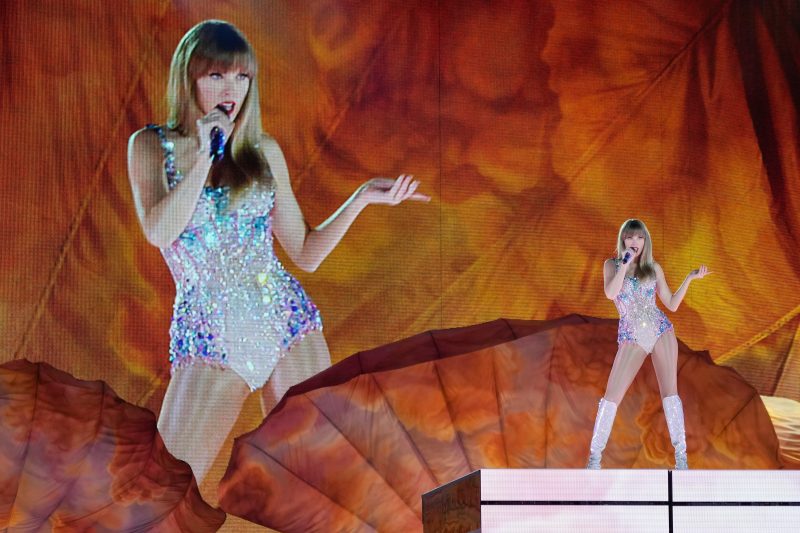Taylor Swift has established herself as a powerful voice within the music industry. With a devoted fan base and a string of successful albums, she has not only shaped the pop landscape but has also found herself increasingly involved in social and political issues. The question of whether Taylor Swift is finally big enough to affect the election is a pertinent one, given her recent foray into endorsing political candidates and encouraging voter participation.
Swift’s impact on political discourse was particularly evident during the 2018 midterm elections in the United States. In an unprecedented move, she broke her long-standing silence on political matters to endorse Democratic candidates in her home state of Tennessee. Her endorsement of Phil Bredesen for Senate and Jim Cooper for the House of Representatives was accompanied by a call to her fans to educate themselves and vote according to their values.
The response to Swift’s political stance was immediate and polarizing. While many praised her for using her platform to advocate for political engagement, others criticized her for intervening in a sphere they considered outside her expertise. Despite the criticisms, Swift’s endorsement seemed to have a tangible effect on voter registration, with a surge in registrations in the days following her announcement. This demonstrates the potential influence that a figure of her stature can wield in shaping public opinion and driving civic participation.
However, Swift’s impact on the election may not be solely a result of her celebrity status. Her decision to speak out on political issues reflects a broader trend of celebrities using their platforms to advocate for social and political causes. In an era where traditional institutions of authority are increasingly questioned, celebrities have emerged as influential voices capable of shaping public opinion and mobilizing their fan base.
It is essential to recognize that Swift’s influence, while significant, is not without its limitations. Political endorsements from celebrities have the potential to sway some voters, but they are unlikely to radically alter the outcome of an election. To affect real change, sustained grassroots mobilization and broad-based civic engagement are essential. Nevertheless, Swift’s involvement in the political sphere signals a shift in the role that celebrities can play in shaping the public discourse and driving political participation.
In conclusion, Taylor Swift’s increasing involvement in politics raises important questions about the extent of her influence and the role of celebrities in shaping the electoral landscape. While her endorsement may not single-handedly determine the outcome of an election, it underscores the potential for celebrities to drive voter engagement and advocate for social and political change. As Swift continues to speak out on issues that matter to her, her impact on the political arena is likely to be a topic of ongoing discussion and scrutiny.
